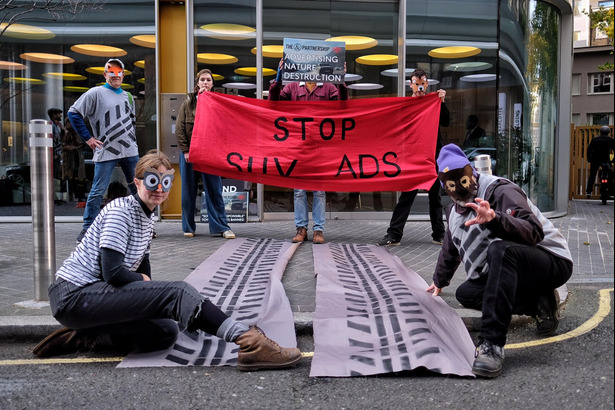A second ban on ads for Repsol within just five months has raised eyebrows and serious questions about the ability of advertising regulation to keep greenwashing in check.
Back in June, when the ASA banned a suite of ads for three of the world’s largest oil and gas companies, Repsol, Shell and Petronas, for misleadingly focusing on renewable energy, the rulings were heralded as “precedent-setting”.
Some even declared it as the end of the fossil fuel industry greenwash, confining it to the history books once and for all.
Not only have these sentiments been shown to be premature, but recent ads suggest that they are simply wrong. Just weeks after the watchdog handed down its ruling on Repsol’s biofuels ad in June, we were surprised and shocked to see a highly similar Repsol spot – this time promoting renewable hydrogen.
Despite tweaks to the wording and imagery by agency DDB Spain, the new ad was practically a carbon-intensive copy of the banned biofuels ad.
On flagging the ad to the ASA (Advertising Standards Authority), Adfree Cities was told it was not possible to remove or suspend it pending investigation, and we were invited to submit another complaint.
Could it be more obvious that regulation is failing? After all, Repsol was still pumping 600,000 barrels of oil out of the ground each day and was relentlessly pursuing expansion of its production of oil and gas. Repsol does not currently sell renewable hydrogen and its investment into this fuel type makes up just 0.1 per cent of their capex.
In the June ruling, the ASA delivered a direct warning to Repsol that the company’s ads must not be misled over its environmental commitments in future. Clearly, the Spanish oil giant did not heed the caution.
After the initial shock of seeing the second Repsol ad, a more familiar feeling took hold: frustration. The current approach to regulating advertising in the UK (and elsewhere) is utterly incapable of dealing with the sheer scale of greenwashing that citizens are being subjected to.
Worse still, the ASA cannot preempt the increasingly cunning ways in which fossil fuel companies promote their products via loopholes navigated by their advertising agencies.
By advertising eye-catching green technologies that are yet to reach any meaningful scale in terms of emissions reductions or commercial viability, these firms claim to be leading the energy transition, while omitting all mentions of the largest and most profitable area of their business – fossil fuels.
This advertising strategy mirrors fossil fuel majors’ broader lobbying and advocacy efforts, where they claim to be playing their part in an energy transition, touting inchoate technologies while investing heavily in climate-wrecking technologies in the face of overwhelming evidence it will lead to catastrophe.
While the ASA did ban this second Repsol ad, this was only after the ad was reported by Adfree Cities. After a three-month investigation, as the ASA noted in its ruling, the ad had already reached consumers and, crucially, investors, via its placement in The Financial Times.
The situation neatly showcases the inherent flaws in the form and function of regulation and flags a huge, overlooked issue within greenwashing regulation: it is not only consumers who are being misled, but investors and politicians who, willingly or unwittingly fooled by the green sheen, will continue to bankroll fossil fuel giants whose expansion strategies are holding the earth’s very future to ransom.
In some cases, notably, the ruling that banned a misleading Shell “Cleaner energy” ad plastered over social media, TV and online to the tune of hundreds of thousands of pounds, rulings are made up to a year after the original ad appeared.
At this point the damage has been done, the horse has well and truly bolted, and the ad has served its brand-enhancing purpose. This reactive approach to regulating advertising, rather than proactively setting parameters through legislation, is destined to fail and fail again.
The regulator defends their “deterrent” approach, in which only a tiny number (2.4%) of environmental complaints are investigated and enforced rulings are even fewer, with the assurance that such rulings lead to precedents that set the bar for others.
But the Repsol case demonstrates that even a party found guilty of misleading was happy to re-offend within weeks of being ruled against.
It won’t be long until another misleading ad from a fossil fuel major appears. As we have shown repeatedly, until structural reforms to advertising regulation are introduced, including an outright ban on high-carbon advertising, the ASA will remain powerless in the face of fossil fuel industry tactics and agency complicity.
Veronica Wignall is co-director at Adfree Cities. This post first appeared in Campaign magazine.
The photo was taken at today’s action outside the offices of The&Partnership, the advertising agency which has been rapped over the knuckles for their Toyota adverts. Credit: Angela Christofilou.














